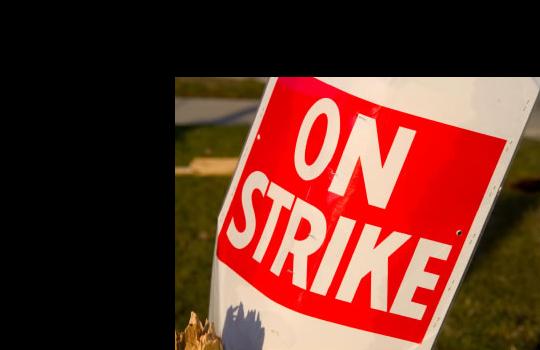The Prime Minister dismissed the biggest national walk-out since the 1970s as a “damp squib”, even though the majority of schools across the UK were shut, services were disrupted and demonstrations took place across the country.
His statement at Prime Minister’s Questions on Wednesday came only hours before Top Gear presenter Jeremy Clarkson, appearing on the BBC’s The One Show, caused outrage by suggesting that public sector workers should be shot dead in front of their families.
When asked during an interview what he would do with strikers, Clarkson replied: "I would have them all shot. I would take them outside and execute them in front of their families. I mean how dare they go on strike when they have these gilt-edged pensions that are going to be guaranteed, while the rest of us have to work for a living."
While some members of the audience laughed, presenters Matt Baker and Alex Jones looked embarrassed and the BBC apologised at the end of show, saying that Clarkson’s humour sometimes overshot the mark.
But the Unison trade union has called on the broadcaster to sack him and is taking urgent legal advice over his "appalling" comments. It is also considering whether to refer the comments to the police.
David Cameron, meanwhile, queried the basis for industrial action in the House of Commons, saying that he thought the Coalition Government had made a “very reasonable, very fair offer to public sector workers”.
“I don’t want to see any strikes. I don’t want to see schools closed. I don’t want to see problems at our borders, but this Government has to make responsible decisions,” he said.
Earlier a spokesman had told the
BBC that only a small number of
Downing Street staff had gone on strike, although others had been affected by school closures and yet more, from its policy unit, were helping out at the country’s borders.
The
Immigration Services Union, meanwhile, claimed that between 80 and 90% of staff were taking action, with 22 out of 23 workers at
Calais port not turning up for work and all of its members downing tools at
Heathrow. Nonetheless, sources told the broadcaster that staffing at immigration control points in the airport was at two thirds of normal levels, much higher than the 30% to 50% expected.
The ICS’ Lucy Morton agreed that, despite apocalyptic warnings, queues at Heathrow were “not that significant” because of reduced flight capacity. But plane arrivals and take-offs both there and at
Gatwick, the UK’s largest airports, were said to have seen minimal numbers of cancellations, mainly of in-bound transatlantic flights to Heathrow.
Widespread disruption
But David Cameron claimed that the number of people joining the action was significantly lower than the two million estimated by the 30 unions involved, branding it, therefore, as "something of a damp squib". The TUC’s general secretary Brendan Barber, on the other hand, attested that it had been "the biggest strike in a generation" and accused the Government of rhetoric "as predictable as it has been shallow".
The Local Government Association indicated that about a third of Council staff in England and Wales failed to turn up for work, the equivalent of 670,000 people out of a total 2.1 million. Around 250,000 public sector workers walked out in Scotland and about 170,000 in Wales.
Demonstrations also took place across the UK in cities ranging from Birmingham (an estimated 30,000 protestors) and London (25,000) to Aberdeen, significant numbers of courts, museums, libraries and job centres were closed, while transport was widely disrupted.
According to the Department of Education, a huge 62% of England’s 21,476 state schools were likewise shut and another 14% partially closed. In Scotland, only 33 of the country’s 2,700 state schools remained open, according to local council body, the
Convention of Scottish Local Authorities, while the same was true at about one in five in Wales.
Three out of the five education library boards in Northern Ireland likewise reported that more than 50% of the region’s 1,200 schools were now closed, bringing disruption to working parents.
Speaking from Brussels at the time, Chancellor George Osborne told
BBC Breakfast that the “strike is not going to achieve anything” and would only “make our economy weaker and potentially cost jobs”.
But Dave Prentis, general secretary of
Unison, told
BBC Radio 4’s Today Programme that millions of workers – and mainly low-paid women – were being unfairly hit by his proposed pension changes and that the last time the unions had met
Treasury ministers was 2 November.
“This idea that negotiations are continuing is just not true,” he said. But Cabinet Minister Francis Maude disputed the claim, saying that formal discussions with the civil service unions had taken place on Tuesday, would happen with the teaching unions on Thursday and health unions on Friday.






